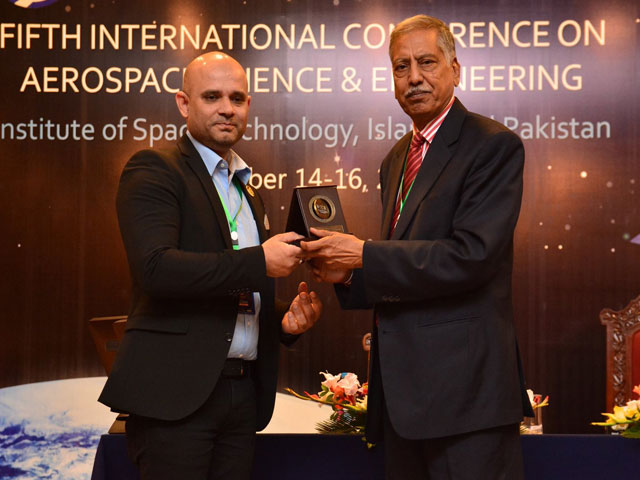Pakistani scientist discovers organic molecule on Saturn 'Enceladus' moon

Dr Khawaja found small but soluble and reactive organic compound pluming from depths of Enceladus.
KARACHI (Dunya News) - Pakistani-German astrobiologist Dr Nozair Khawaja along with his team of US and German scientists has discovered a vital organic molecule on Enceladus, one of the 62 moons revolving around the Saturn.
Scientists have termed the discovery to be the first of its kind beyond Earth, making Enceladus entitled to be among the list of notable prospect for having extraterrestrial life in the universe. Enceladus is about 500 kilometres in diameter.

According to a local news agency, Dr Khawaja, a researcher at the Freie Universität Berlin, is leading a team of scientists from the United States (US) and Germany. His team was conducting research on data gathered from the moon’s hydrothermal core – earlier gathered by National Aeronautics and Space Administration’s (NASA) Cassini spacecraft.
Dr Khawaja expressed, “I have found small but soluble and reactive organic compound pluming from the depths [ocean] of Enceladus. The compound from the ocean of Enceladus is already a known ingredient of amino acids found in the oceans of Earth.”
Although NASA’s Cassini spacecraft – launched in 1997 – completed its research mission in 2017, scientists have yet to study all the research material gathered during the spacecraft’s vital mission.
“With each passing day, Enceladus is becoming one of the most habitable potential objects in the solar system to study traces of life after Earth. The next logical step should be to explore the Cassini space probe data and find more bio-signatures in the subsurface ocean of Enceladus. More space missions should be proposed and planned to explore this tiny world which is full of surprises,” said the Pakistani astrobiologist.
Amino acids are the organic compounds known as the building blocks of life for almost every creature on Earth. Various types of amino acids play major roles in protein making, metabolism, synthesis in hormones and neurotransmitters from the brain to across the human body.
The organic molecule, found by Dr Khawaja and his team, is composed of oxygen and nitrogen and has been enveloped in ice grain. It can easily be dubbed as a precursor of amino acid.
Enceladus’s ocean is covered with an ice sheet, similar to Earth’s icy poles. The ice grains and the vapours that are ejected from this ocean through hydrothermal activity are released in space from small cracks on the moon’s surface.
On Earth, such events have been witnessed at vents or hot chimneys on the ocean floor. The hydrothermal vents on Earth eject many vital molecules and compounds vital for life. Enceladus may also hold the same mechanism as it spews essential molecules, a phenomenon recorded by the NASA and confirmed by scientists.
In 2018, Dr Khawaja had also observed a relatively large compound from Enceladus.

